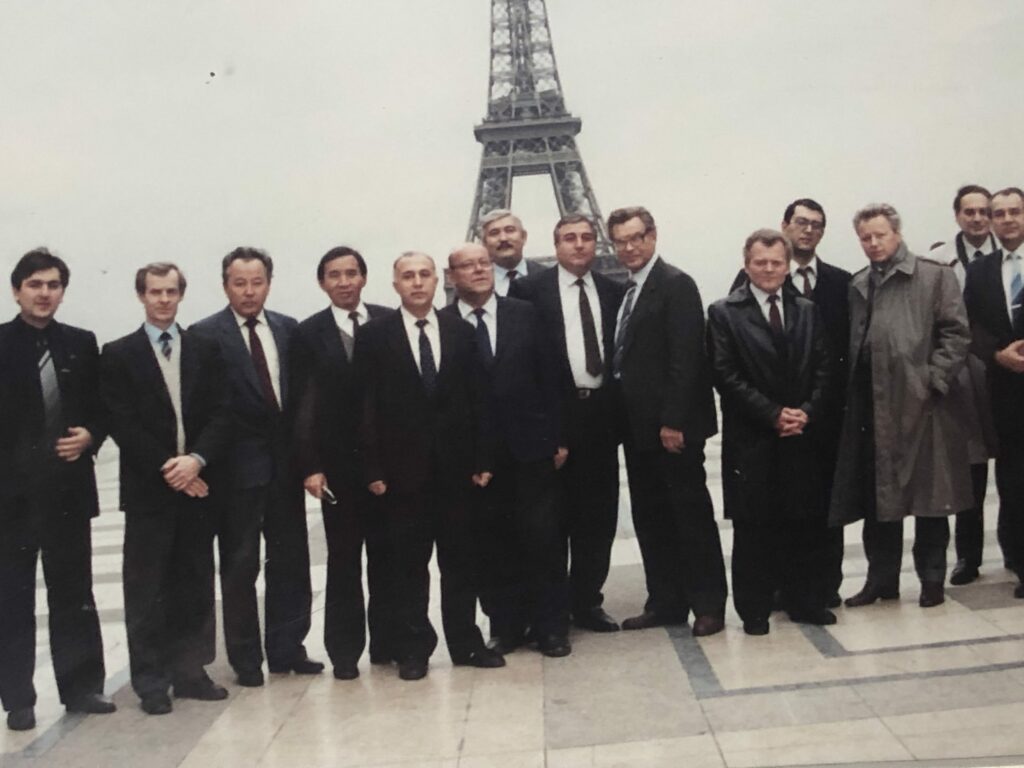Since the fall of the Berlin wall, we have entered a multipolar world conducive to conflicts, given that it is difficult to have the rules respected. We do not know the shape of the desirable world order yet, but we can imagine it. We already know, at state level, through the extensible and limitless democratic model, how to achieve the peace to which people aspire all over the world. It therefore only suffices to extend it to the global level.
History has already given us the solution without our knowing it. Modern democracy, which has no connection with ancient Greece, emerged as the result of a slow evolution of Law, once a limited number of states had made an appearance at the end of the Middle Ages. By putting an end to the dispersion of the political power following the fall of the Roman empire, this created a diplomatic balance which prevented the emergence of a European empire and had the beneficial effect we can note, with the rise of a law of politics. A game being played between five or ten protagonists is conducive to stability, for none of them can expect to impose his hegemony on the others without coming up against a coalition of the others, as Napoleon or Hitler learned at their expense.
Since the globe consists of a limited number of major cultural areas, say between seven and ten, it would suffice for them to morph in time into as many geopolitical tectonic plates for the same phenomenon to take place again at a few centuries’ distance, on worldwide scale this time. Things are already moving in the right direction. Europe has paved the way to a voluntary union of different states into a same cultural area. The motor of history has already changed. We are entering a new era in which the extension of pacified spaces will no longer be through annexations and military conquests.
What remains to be seen is how the movement can be accelerated. Political Europe, whose telephone number Henry Kissinger was already asking for half a century ago, might have taken the plunge earlier on, after the fall of the Berlin wall, and aimed to place itself on a par with the United States. Russia no longer was a menace. NATO had lost its raison d‘être and the new Kremlin boss, highly considered by Western diplomats posted in Moskow, was begging for it. Europe could then have drawn the line of its Eastern borders according to cultural criteria. Unlike Poland and the Baltic states, the tsars’ empire, like the ottoman empire, had never been part of Europe. The conflict in Ukraine might perhaps have been avoided.
Things turned out differently. The idea of including Russia’s historic cradle in Europe apparently came from America, under the influence of descendants of families originating from bordering countries. Future historians will tell us more about it. This unexpected conflict will probably appear tomorrow as an avatar in the chaotic emergence of a new world in the making. Since the dispute bears on the frontier between two major cultural areas, there is no possibility of a military solution. By laying bare the underlying problem, however, the resolution of the conflict might well bring good out of an evil, once the reconstruction of Ukraine has started. The fundamental issue will have become topical.
It might even be the occasion of a major diplomatic conference following the tradition of the big conferences with which European history is punctuated. Once the major cultural plates pacified by law, a balance of forces between them would constitute the natural basis of a global democracy. All the pieces of the jigsaw puzzle would fit into place. As soon as it would become capable to enter modernity under the form of an East-Eurasian Federation, the Russophone space will find its natural place between Europe and China. As to the Chinese regime, it will evolve. It is doubtful whether the great-great-grand-nephews of Uncle Xsi will accept to be regimented any longer. The desirable world order is already shaping up under our eyes.
There remains to be seen how the process can be hastened. The international community is not deprived of tools, for it is properly represented by the U.N. We have gone beyond the Declaration of the Rights of Men of 1945, for we now know how to convert them into Citizen’s Rights, through the magic of a form of government which does not hold any secrets any more. The problems being the same everywhere, the solutions also are universal. The principles to be implemented being now well-known, eminent citizens, apt to be the spokesmen of the sphere of knowledge, are better placed to lay the foundations of the future world order than the states themselves.
At the same time as saving on a certain number of obscure commissions, an Upper House inside the U.N. could be created and called the World Council for Democracy. Its mission would be to define the strategy and means to put an end to wars worldwide. The complete toolbox of the means to establish a good regime would be available to all heads of state, including autocrats that would wish to leave a good memory of their passage too. The moment will then be ripe for the birth of pluri-national entities.
G.L.

